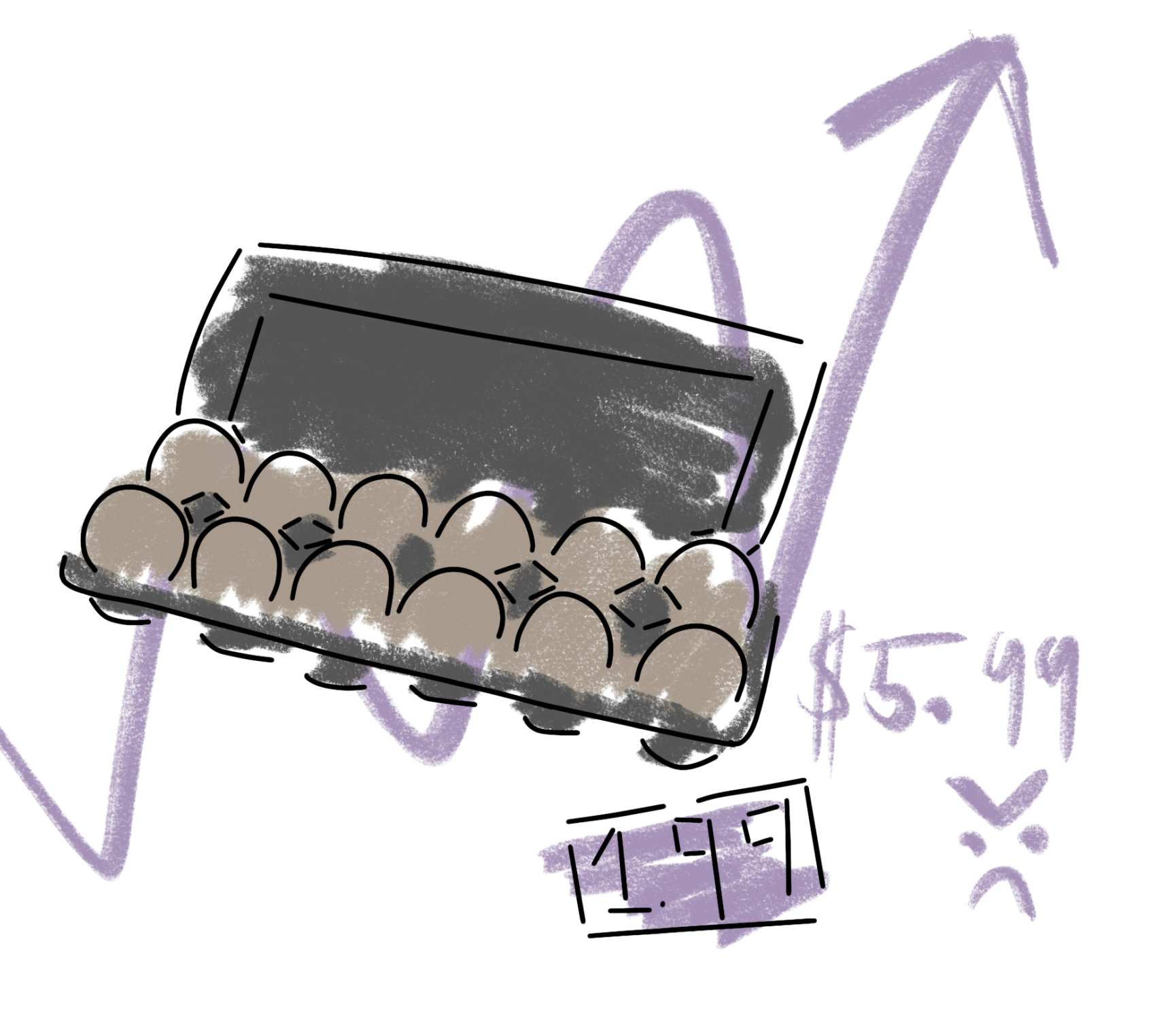Egg prices have impacted what culinary teachers can buy for their classes’ cooking lessons and tutorials. Because of this, culinary teachers like Mrs. Rooks must use their eggs more sparingly for all their classes.
“I’m kind of limited in my curriculum because I have to teach how to make a meringue, and I have to prepare sponge cakes, and all of these things rely on egg whites to do that,” Rooks said. “So I’m a little bit limited by my curriculum, and I have to use a lot of eggs for certain recipes, but for other recipes, I just try to completely cut them out; if I can make a quick bread without an egg, I’ll do that.”
However, the increase in the price of eggs has also affected all teachers’ priorities while they shop for groceries. Economics teacher Mr. Mowry explained how he’d usually go about shopping and any changes he’s made to regular purchases.
“I always participate with my wife and figure out what we need for groceries,” said Mowry. “We still buy eggs, but you can tell we haven’t been buying them at the same amounts that we used to buy, like a carton of eggs or something, so it’s impacted our consumer behavior for sure.”
Some families have even started using their eggs more sparingly. For instance, Mrs. Rooks has slightly changed how she prepares daily breakfasts for her family.
“I always have a carton of eggs, I consider that a staple in my household. I would say that we use them more sparingly, we save a big breakfast for the weekends and don’t necessarily think to do that during the week as before: when they were cheap,” Rooks said. “It was a really good source of protein for my kids in the morning, but now we just make it a special thing on the weekend.”
The problems posed by the price increase are also more complex. Since eggs are a great source of nutrition, Mrs. Rooks has recognized how problematic the pricing could be for consumers.
“Eggs are like the single best source of protein per weight and they used to be the cheapest,” Rooks said. “For any families at home who don’t want to buy pork and beef because of prices, eggs were a really good nutritional alternative to that.”
Currently, other news outlets are making reports on egg prices, better ways to get eggs, and what citizens are doing in response to the egg prices.
“I know a lot of the news articles and such are trying to give people timelines and say, ‘Hey you know it could be 9 to 12 months before we see any dropping from those prices,’” Mowry said. “ I know there’s been an article, I thought this was kind of interesting and kind of funny also, people are trying to smuggle eggs into the United States from other countries”
Most problems surrounding egg prices are caused by a virus that’s been infecting chickens for a long time: Bird Flu.
“Bird Flu can attack a lot of different animals, you know, chickens are one of the animals that it affects, and because of that a lot of egg-laying chickens died, so the supply of eggs has drastically decreased,” Mowry said. “The problem with why it’s lingering and staying around is because we have to get more chickens. You have to hatch them and then it takes like 9 to 12 months before they can start laying eggs again. That’s why the supply of chicken eggs is super low right now.”
With fewer chickens comes fewer eggs. This combined with the unwavering consumer demand causes pricing problems with any poultry products provided to customers.
“If you know anything about the law of supply and demand, when demand stays where it’s at and then the supply of eggs drops, the price is going to increase drastically,” Mowry said. “That’s what we’re seeing at stores right now.”










